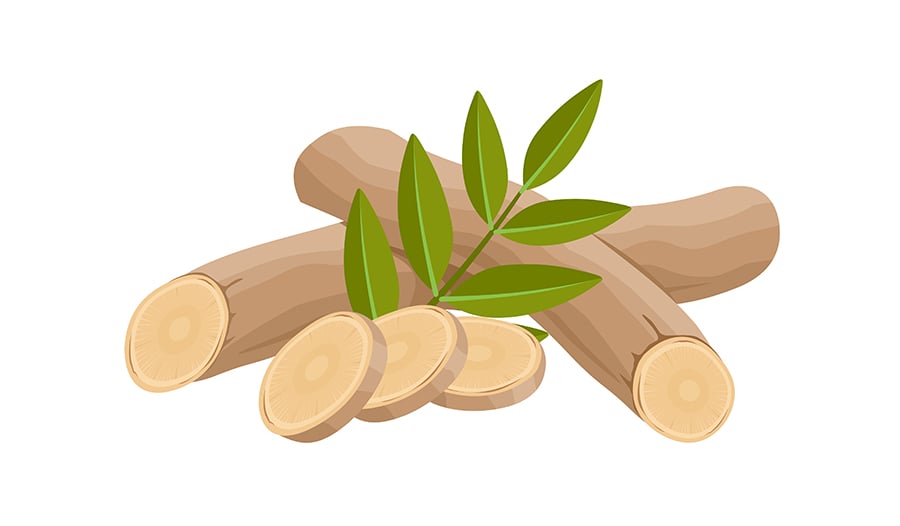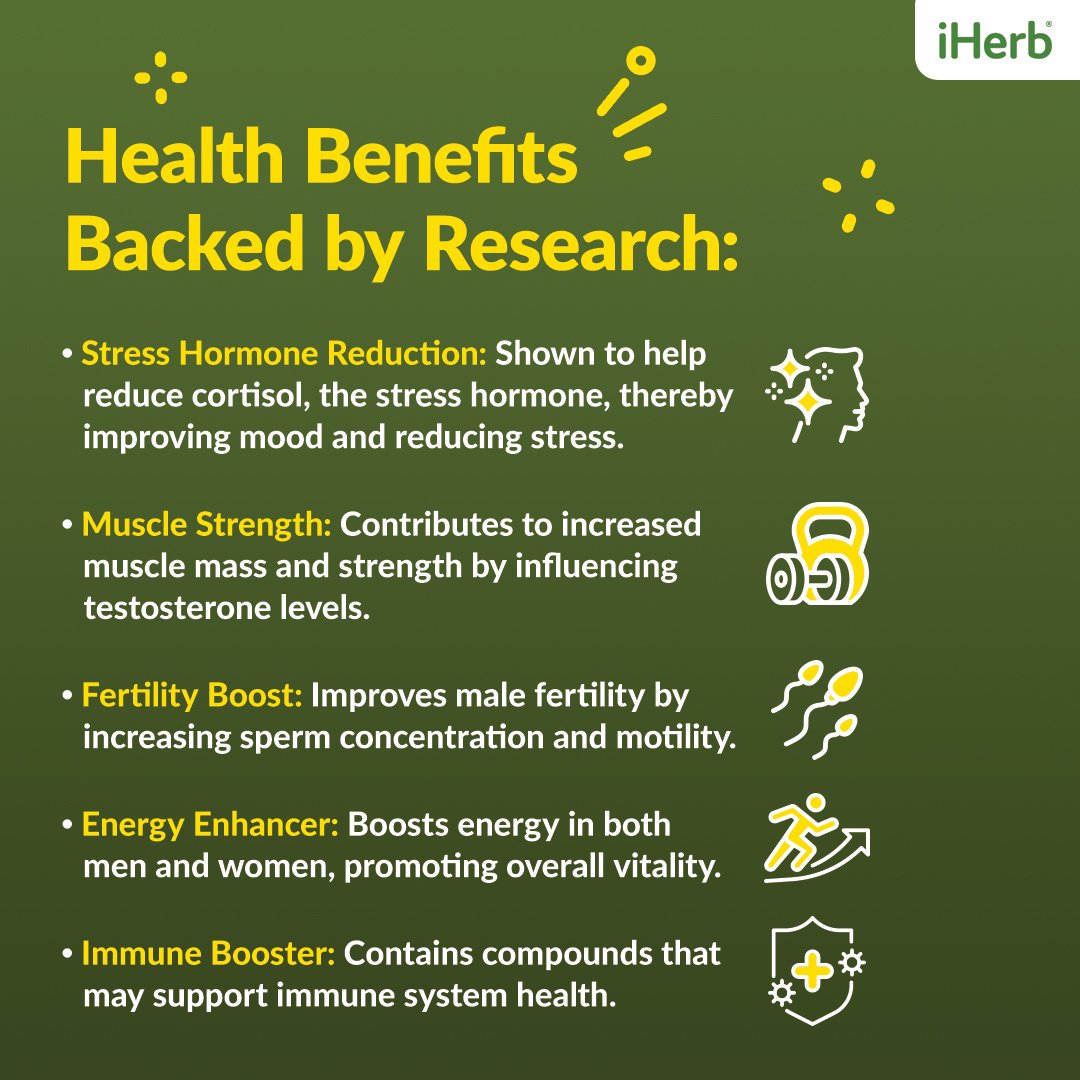3 Incredible Tongkat Ali (Longjack) Benefits: Testosterone, Stamina, and More
DISCLAIMER:This blog does not intend to provide diagnosis...
- In this article:
- What Is Tongkat Ali?
- 1. Tongkat Ali and Sexual Health
- 2. Tongkat Ali and Antimicrobial Benefits
- 3. Tongkat Ali and Physical Performance
- Takeaway

Tongkat ali has been traditionally used for centuries to support the health of many individuals throughout Southeast Asia. Now this herb is enjoying worldwide exposure to the health benefit of millions. What is tongkat ali?
What Is Tongkat Ali?
Tongkat ali, also known by its scientific name Eurycoma longifolia, is a tall, thin, shrub-like plant native to countries in Southeast Asia, including Malaysia, Thailand, and Indonesia. Used as a traditional medicinal herb for centuries, tongkat ali is often known for its potential benefits for sexual health.
Traditionally, tongkat ali has been used to increase sexual desire and arousal, and its use as a traditional libido enhancer is well documented. It is also used for sexual disorders such as erectile dysfunction.
While tongkat ali is often associated with sexual benefits, studies suggest this amazing herb may also have powerful antimicrobial properties. Tongkat ali may also help to improve body composition, physical stamina, and muscle recovery.

1. Tongkat Ali and Sexual Health
When it comes to sexual health, especially for men, tongkat ali is often placed in the category of testosterone-enhancing herbs. Other herbs in this category include horny goat weed (the Epimedium genus) and Tribulus terrestris (also known as puncture vine, tribulus, and goat’s head).
Research indicates that tongkat ali may help to boost testosterone production in men. Testosterone is the main steroid hormone that causes the development of secondary sexual characteristics in males, like more muscle mass and facial hair. Testosterone is also linked to sexual health in men.
One study, a systematic review, found that tongkat ali helped to improve testosterone levels in men. A systematic review is a study that combines all research on the subject of interest and analyzes the results.
This study found that supplementation with tongkat ali increased the testosterone levels in the blood of healthy men and men with hypogonadism. Hypogonadism in males is a condition in which the testicles don’t produce enough testosterone. Hypogonadism in males can have a wide range of causes, from infection and testicular injury to the effects of chronic illness treatment and obesity.
In addition to improving testosterone levels, research also indicates that tongkat ali may help to improve erectile dysfunction, which is the inability of a man to get or sustain an erection that is firm enough for sexual intercourse. Erectile dysfunction often affects men over 40 years of age due to conditions such as high blood pressure, obesity, diabetes, and low testosterone levels. While research suggests that supplementing with natural approaches like arginine can help improve blood flow and erectile dysfunction, tongkat ali may also benefit the condition.
One double-blind, placebo-controlled, randomized study looked at the effects of tongkat ali or placebo on 45 men over the course of 6 months. The age range of the men involved in the study was between 47 and 52 years of age. All of the men struggled with erectile dysfunction. The study found that the men who received both a tongkat ali supplement and erectile function training had better outcomes than those who used a placebo alone.
Studies suggest that tongkat ali may also benefit men experiencing testosterone deficiency syndrome (TDS). TDS is a condition that occurs during aging whereby the body produces less testosterone. It is estimated that men older than 60 years old have 45% to 50% less testosterone than younger men.
Symptoms of TDS include fatigue, increased body fat, a lowered libido, and even osteoporosis. Erectile dysfunction is also common with those suffering from TDS. Studies estimate that approximately 80% of men will experience TDS as they age.
Studies show that tongkat ali may help to reduce the symptoms of TDS by acting as natural testosterone replacement therapy. One study found that tongkat ali supplementation helped improve testosterone levels while lowering blood sugar levels.
Research suggests that tongkat ali may also benefit women entering into menopause. One double-blind, placebo-controlled, randomized study followed 112 women aged between 41 and 55. These women were either at the cusp of menopause or had entered into menopause and were experiencing hot flashes and abnormal blood lipid profiles.
The study found that supplementation with a product that contained tongkat ali helped to reduce the sensation of hot flashes as well as improved both low density lipoprotein (LDL) and triglyceride levels. The placebo group did experience a reduction in hot flashes at a slightly lower rate than the tongkat ali group, but there were no beneficial changes in lipid profiles.
2. Tongkat Ali and Antimicrobial Benefits
Tongkat ali has a long history of traditional use as an antimicrobial. As a traditional medicinal it was used to treat anything from jaundice (a yellowing of the skin and eyes due to liver dysfunction) to malaria.
With the current state of worldwide antimicrobial resistance to known approaches increasing, new approaches must be researched. Tongkat ali shows promise as a powerful antimicrobial agent. One systematic review of tongkat ali found that it effectively reduced infections from fungus to parasites.
Research shows that tongkat ali may have powerful antifungal effects against Candida albicans. The herb may also have antiparasitical effects against Plasmodium falciparum, the parasite that causes malaria, and Toxoplasma gondii. Interestingly, one study even suggested that tongkat ali be researched further for veterinary uses since its potential effectiveness against T. gondii may be beneficial for pets and people.
One study also found that an extract of tongkat ali root had a profound antibacterial effect on bacteria, such as Escherichia coli, Staphylococcus aureus (staph), and Pseudomonas aeruginosa.
Studies suggest that tongkat ali may also have potent antiviral activity as well. One in vitro study found that tongkat ali had a powerful antiviral effect against viral respiratory infection.
Moreover, one animal study found that tongkat ali supplementation had a beneficial effect against dengue fever. Dengue fever is a viral infection transmitted by the bite of infected mosquitoes.
3. Tongkat Ali and Physical Performance
Everyone wants to stay strong and fit even into their twilight years. Unfortunately, with aging comes a loss of muscle mass, stamina, and energy. Studies suggest that tongkat ali may help to alleviate the effects of aging by acting as an anti-aging ergogenic substance. An ergogenic substance can increase physical strength, performance, stamina, and recovery. Protein powders are an example of ergogenic substances.
Ergogenic substances may also help to improve longevity and quality of life by increasing body function. While studies usually focus on the benefit of tongkat ali in men, one study followed both male and female seniors to assess the ergogenic benefits of tongkat ali supplementation. The study followed 13 men and 12 women aged between 57 and 72 for 5 weeks.
Both male and female groups were physically active and received a 400 mg tongkat ali supplement to assess the ergogenic effects of the herb. The study found that testosterone levels were higher in both men and women, although they were higher in men. There was also a significant increase red blood cells in both the males and females. Furthermore, the study found that tongkat ali supplementation increased muscle strength in both men and women.
Tongkat ali may also help to improve body composition. One placebo-controlled study followed 15 healthy men for 5 weeks to assess the effects of tongkat ali on body composition and muscle mass. The male participants followed an intense training program. Half of the participants received a 100 mg per day tongkat ali supplement while the other half received a placebo. The study found that the men who had received a placebo had a lower body fat percentage as well as increase in lean muscle mass.
While research suggests that tongkat ali may help improve muscle mass and body composition, one study found no benefit found with tongkat ali supplementation for runners and cyclists. The study's authors speculated that this was because the dosage of the tongkat ali supplementation at 75 mg per day for only seven days was too low.
Takeaway
Tongkat ali has a long traditional history of use as a medicinal herb for sexual health. It has also been used as an antimicrobial and an ergogenic substance to enhance physical strength, stamina, and recovery. Adding tongkat ali to any wellness routine may help to benefit both sexual and overall health for many years to come.
References:
- Chen CK, Muhamad AS, Ooi FK. Herbs in exercise and sports. J Physiol Anthropol. 2012;31(1):4. Published 2012 Mar 8. doi:10.1186/1880-6805-31-4
- Chinnappan SM, George A, Evans M, Anthony J. Efficacy of Labisia pumila and Eurycoma longifolia standardised extracts on hot flushes, quality of life, hormone and lipid profile of peri-menopausal and menopausal women: a randomised, placebo-controlled study. Food Nutr Res. 2020;64:10.29219/fnr.v64.3665. Published 2020 Sep 3. doi:10.29219/fnr.v64.3665
- Choonong R, Ruangdachsuwan S, Churod T, et al. Evaluating the in vitro efficacy of quassinoids from Eurycoma longifolia and Eurycoma harmandiana against common cold human coronavirus OC43 and SARS-CoV-2 using in-cell enzyme-linked immunosorbent assay. J Nat Prod. 2022;85(12):2779-2788. doi:10.1021/acs.jnatprod.2c00736
- George A, Henkel R. Phytoandrogenic properties of Eurycoma longifolia as natural alternative to testosterone replacement therapy. Andrologia. 2014;46(7):708-721. doi:10.1111/and.12214
- George A, Zandi K, Biggins J, Chinnappan S, Hassandarvish P, Yusof A. Antiviral activity of a standardized root water extract of Eurycoma longifolia (Physta®) against dengue virus. Trop Biomed. 2019;36(2):412-421.
- Hamzah S, Yusof A. The ergogenic effects of Eurycoma longifolia Jack: a pilot study [abstract 7] Br J Sports Med. 2003;37:465–466
- Henkel RR, Wang R, Bassett SH, et al. Tongkat Ali as a potential herbal supplement for physically active male and female seniors--a pilot study. Phytother Res. 2014;28(4):544-550. doi:10.1002/ptr.5017
- Latip MQA, Noor MHM, Ahmad H, et al. A systematic review on antimicrobial and antiparasitic activity of Eurycoma longifolia Jack (Tongkat Ali). Biomed Res Int. 2022;2022:4999797. Published 2022 Jul 6. doi:10.1155/2022/4999797
- Leisegang K, Finelli R, Sikka SC, Panner Selvam MK. Eurycoma longifolia (Jack) improves serum total testosterone in men: a systematic review and meta-analysis of clinical trials. Medicina (Kaunas). 2022;58(8):1047. Published 2022 Aug 4. doi:10.3390/medicina58081047
- Leitão AE, Vieira MCS, Pelegrini A, da Silva EL, Guimarães ACA. A 6-month, double-blind, placebo-controlled, randomized trial to evaluate the effect of Eurycoma longifolia (Tongkat Ali) and concurrent training on erectile function and testosterone levels in androgen deficiency of aging males (ADAM). Maturitas. 2021;145:78-85.
- doi:10.1016/j.maturitas.2020.12.002
- Rastrelli G, Corona G, Maggi M. Testosterone and sexual function in men. Maturitas. 2018;112:46-52. doi:10.1016/j.maturitas.2018.04.004
- Rehman SU, Choe K, Yoo HH. Review on a traditional herbal medicine, Eurycoma longifolia Jack (Tongkat Ali): its traditional uses, chemistry, evidence-based pharmacology and toxicology. Molecules. 2016;21(3):331. Published 2016 Mar 10. doi:10.3390/molecules21030331
- Rhim HC, Kim MS, Park YJ, et al. The potential role of arginine supplements on erectile dysfunction: a systemic review and meta-analysis. J Sex Med. 2019;16(2):223-234. doi:10.1016/j.jsxm.2018.12.002
- Shamloul R, Ghanem H. Erectile dysfunction. Lancet. 2013;381(9861):153-165. doi:10.1016/S0140-6736(12)60520-0
- Tong KL, Chan KL, AbuBakar S, Low BS, Ma HQ, Wong PF. The in vitro and in vivo anti-cancer activities of a standardized quassinoids composition from Eurycoma longifolia on LNCaP human prostate cancer cells. PLoS One. 2015;10(3):e0121752. Published 2015 Mar 31. doi:10.1371/journal.pone.012175
- Ulbricht C, Conquer J, Flanagan K, Isaac R, Rusie E, Windsor RC. An evidence-based systematic review of tongkat ali (Eurycoma longifolia) by the Natural Standard Research Collaboration. J Diet Suppl. 2013;10(1):54-83. doi:10.3109/19390211.2012.761467

 By Dr. Candace Mathers, N.D.
By Dr. Candace Mathers, N.D.


